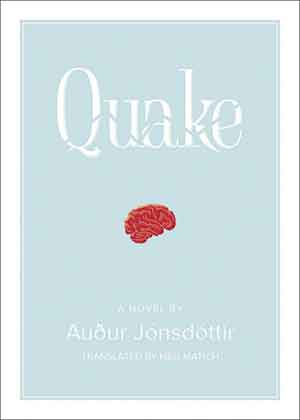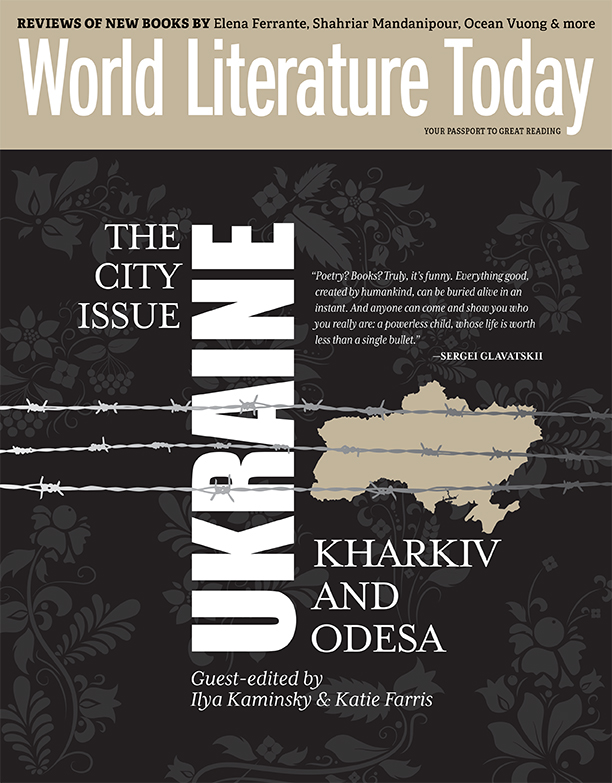Quake by Auður Jónsdóttir
 New York. Dottir Press. 2022. 264 pages.
New York. Dottir Press. 2022. 264 pages.
QUAKE, THE FIRST of Icelandic author Auður Jónsdóttir’s novels to be translated into English, is an absorbing and disquieting journey into memory and trauma. The novel, originally entitled Stóri skjálfti, was translated by Meg Matich, who brings a modern acuity to Jónsdóttir’s sensual, textured prose.
As the novel begins, we are introduced to Saga, a young Icelandic mother who wakes up following an epileptic seizure with only fractions of her memory available to her. As she struggles to fill the fissures in her personal history—why she suffered her first seizure in decades, why her husband had moved out of their shared home only weeks before, the nature of her son’s illness—she also deals with repression, denial, fear, and the bitter legacies of trauma.
In Saga’s disoriented initial state, the details of the unfamiliar world are what allow her to navigate: the fading white roses on the table, the scent of the absent husband, the habitual frictions of familial relationships, and the dangers presented by her fragmented sense of self. “But I’m surveying the beauty of the world—how the deep valleys, guarded by basalt bluffs, seem to glitter when the sun shines, and I see, I see the immense beauty of it all. The beauty is pain in my heart. One misstep, and everything is nothing, nothing if I fall.” Realizing that her son’s safety will be compromised if the extent of her memory loss is known, Saga enlists the assistance of a neighbor girl to preserve the façade even as she tries to piece together the past, an alliance that gives the book much of its structure and sense of pace.
The novel depicts issues surrounding anxiety, mental health, and chronic illness with a stark and visceral immediacy that will be familiar and oddly reassuring to readers who have experienced similar challenges. Thinking of her epilepsy as an assailant, Saga reflects on the vulnerability of having an enemy within one’s own skin: “You are badly bruised, love. . . . Your attacker really let you have it. Not for the first time, and not for the last time either. Bones cracked—he threw you to the floor, the child crying. . . . It is him that rules your body. He owns you.” Her commitment to uncovering painful truths is by turns inspiring and heartbreaking.
Jónsdóttir offers a blunt narrative in Saga’s voice, which gives delicate insight into her motivations without allowing the reader to be comforted by her denials and excuses. She fears for the safety of her child, but that fear leads her to further alienate her already-distant family; she is resentful of her epilepsy, which leads to a string of poor health decisions and gives it greater power over her. As Saga’s doctor observes, “The anarchy of the world is rooted in the anarchy of the body; we have no power, but we struggle to control our fate to the bitter, bloody end.” We are invited to appreciate Saga’s strength and courage but also to understand that the consequences of her failures will be punishing lessons in what can and cannot be controlled. In the end—and to the book’s credit—we are left with empathy and pity for the flawed Saga, and a sense of honest introspection.
Quake is an unflinching exploration of the human instinct to forget and deny trauma, as well as the power of mindful forgiveness; in this way, it is a thrillingly contemporary perspective on the choices we make, conscious and unconscious, that give our futures their shape.
Elizabeth Rae
University of Oklahoma
When you buy a book using our Bookshop Affiliate links on this page, WLT receives a commission. Thank you for your support!




























